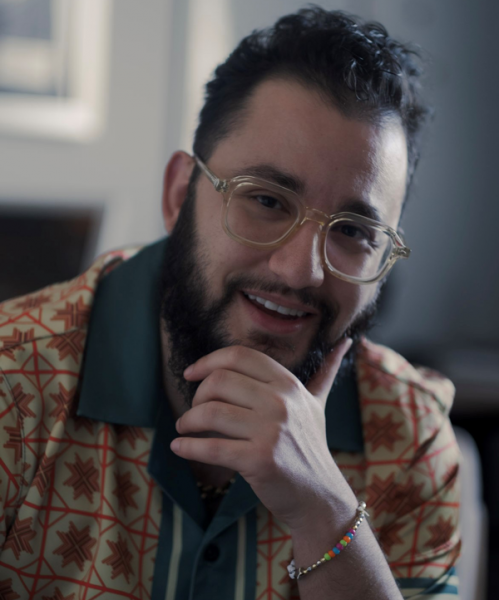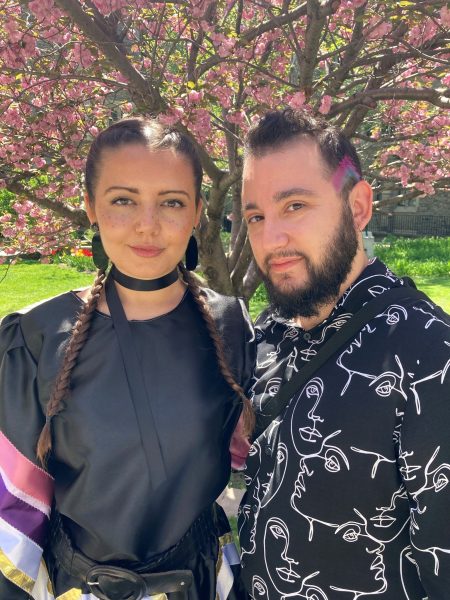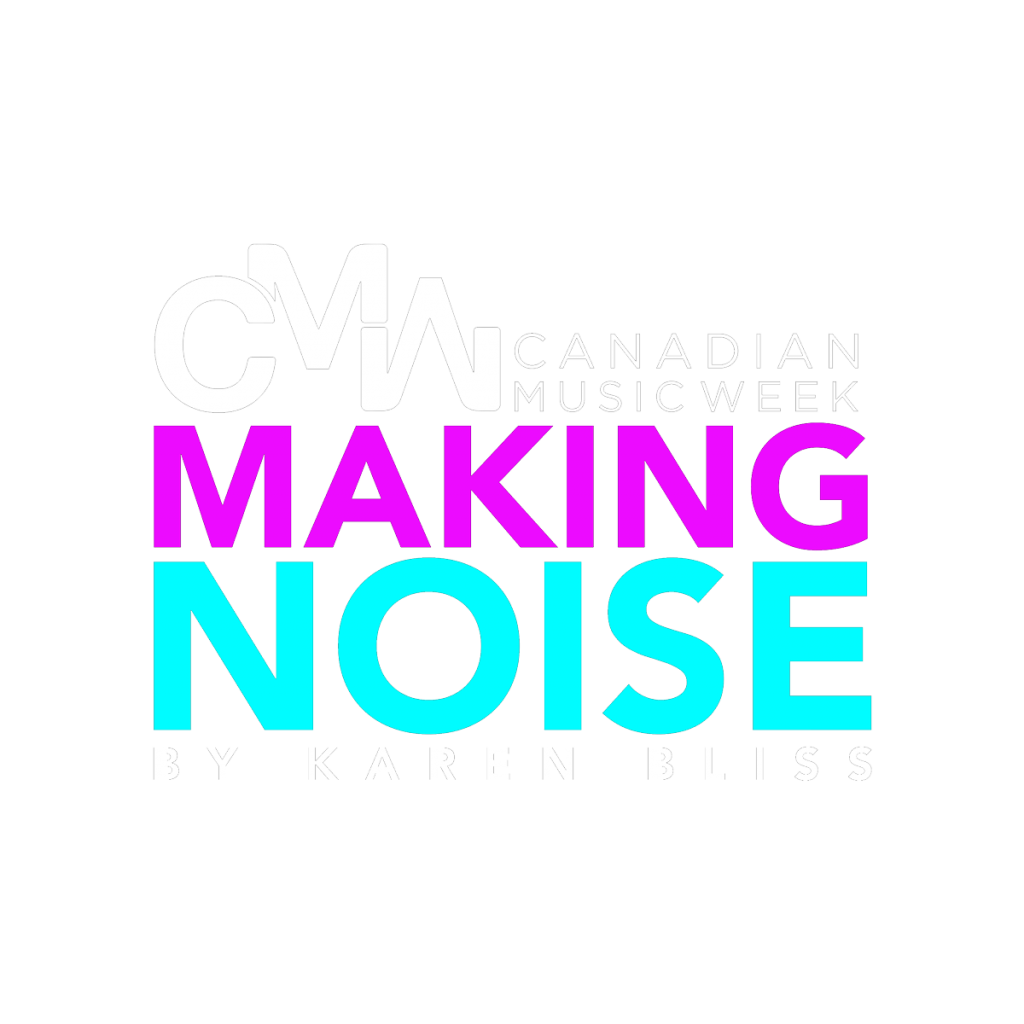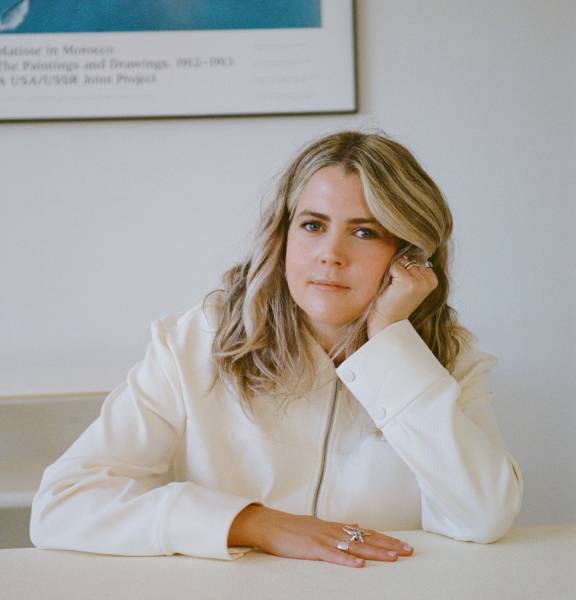By Karen Bliss
The press release issued by Troy Carter and Suzy Ryoo’s music and technology company was simply captioned: Venice Music Names Dani Oliva as New Vice President of Business and Legal Affairs. It’s not until the bottom “about Dani Oliva” paragraph that it states he is “a transgender, Canadian, artist advocate, speaker and music attorney.”
For Toronto-born Oliva, who has been in the music business for two decades and a Los Angeles-based lawyer for a decade, it’s a proud, important accomplishment for the transgender community. It can’t get much better than working for a start-up, founded by two executives who formerly worked together at Atom Factory, the artist management company behind such acts as Lady Gaga, John Legend, Meghan Trainor and Charlie Puth.
“The position is particularly significant because there are few, if any (none that I can find) transgender people with an executive position at a leading music company,” he wrote in an email message prior to the public announcement of the job.
Oliva is right. As a transman not only as in an executive position but as a lawyer, he has beaten the odds and it’s important for him to be a visible role model.
According to a 2021 McKinsey study, nearly 30 percent of transgender people in the United States are not in the workforce and are twice as likely as the cisgender population to be unemployed. A 2020 study by Trans Pulse Canada found that 43 percent of transgender participants were employed. The reasons are long and complex, ranging from discrimination in the workplace to family estrangement to mental health struggles.
Oliva became passionate about music in his teens, reading the liner notes of records and attending local club shows. In his mid-teens, he joined street teams for labels Sub Pop, Fat Wreck Chords, and later Fearless Records, postering around Toronto and making sure their artists’ were front-racked at record stores. Later, he stepped into more marketing efforts for labels in the same alt rock/indie/punk genre and was paid to host listening parties and was part of the promo team outside of concerts.
When he hit Ontario’s legal age of 19, Oliva started booking and promoting shows at Jeff Healey’s venue, and later The Annex Wreckroom, Revival and a couple other venues around Toronto. Meanwhile, he attended the University of Toronto for English literature and art history, before pursuing a law degree.
Oliva moved to Los Angeles in 2008 to attend the University of La Verne College of Law on a scholarship. He did some music journalism for The Huffington Post and did an externship in the the business & legal affairs department at Live Nation.
During law school and after graduating in 2012, he managed bands, including Canadian metal act Sumo Cyco, fronted by Juno-nominee Skye Sweetnam, securing them a deal with Napalm Records before amicably parting ways.

In 2017, he founded Oliva Law Group, P.C. which aids clients in a wide range of matters from royalty disputes to breach of contract claims, copyright infringement, as well as band partnership agreements, endorsement deals, visa applications, sponsorships, and more.
In 2020, with his management client Jayli Wolf, and Hayden Wolf (no relation), they co-founded Indigenous and LGBTQ+ indie label Alt Eden to launch her 2021 solo debut EP, Wild Whisper, as well as sign other acts; their first is Jackie Lipson. The company is distributed by Cadence in Canada and InGrooves for the rest of the world.
Last year, he excitedly reports being given a U.S. platinum record (triple platinum in Canada) as thank you for his legal work on Ariana Grande’s two-time Grammy-nominated album, Positions, on behalf of Oliva’s client James Jarvis (a.k.a. JustAcoustic), who had a hand in writing the title track. Among his other clients are DOMi, of two-time 2023 Grammy-nominated DOMi and JD Beck, signed to Anderson.Paak’s label APESHIT.
He also tells Making Noise his firm also did the deal for Quincy Jones’ 2022 audio book, 12 Notes and negotiated and closed a deal for all of the music in season 2 of Mattel’s Monster High, pulling in Canadians to write the theme song, including Jayli.
Karen Bliss spoke with Oliva about his new gig at Venice, his other business ventures; his initial experiences in the music industry presenting as a woman, then as a trans man; and why it’s important to be visible and outspoken.
In this new position at a music and tech company, is there uncharted territory for you as a lawyer, issues that might arise that don’t have a precedent?
A lot of things are novel. For example, we assist with creating web3 projects for artists that are with Venice. So your typical NFT, but also web music licensing in web3 [Web 3.0 is the next evolution of the web which is decentralized, intelligent and more connected]. Venice is also creating its own web3 NFT marketplace. That area of law generally is novel because a lot of that area of law has not been settled yet, ideas of whether an NFT is a copyright duplication, let’s say, or a copyright, that has not been decided by the court. There are a lot of areas that have not been decided by the court.
Venice also is creating a physical space, kind of like a Soho House, for its members. Its membership gated essentially, where there are recording studios, as well as a podcast space, so that other creatives can meet each other and collaborate, make connections, have community.
Another thing that’s really neat about Venice is their educational talks, moments, things that members can subscribe to, which I think is different for a distributor or a label services company. There’s at least one non-member event per week. The company is intended for artists that want to stay independent but need business support service.
Do you still have your law firm or is it dissolved now that you are working for Venice? If not, is Venice another client or full-time/in-house?
I am full-time in house at Venice Music, but I still am founder and owner of my law firm Oliva Law Group, P.C. It is not dissolved. Venice let me keep a few Oliva Law clients, as there was no conflict of interest, and my associate [Shevaun Wright] and our wonderful staff [Francis Kemper , law clerk/logistics coordinator, and new hire Erin Garcia, paralegal] are now running Oliva Law Group, P.C. while I am working at Venice Music.
What did they like about what you for this role?
The unique thing about my experience is I’ve always represented artists. I work with a lot of independent artists. I’ve helped a lot of artists create business structures because they wanted to maintain their independence. I think that was very appealing to Venice in the sense that I’m a very artist-friendly person and their deals are intended to be very artist friendly. They wanted somebody who can communicate to their members in a way that they would understand. I also have a background in litigation, which means that not only have I drafted deals, but I understand how deals might fall apart in court. So I have the unique experience of really understanding how the words on the page function in reality and I have experience in the music industry aside from being an attorney as well. I think that was also appealing to them.
Your email introduction to me began with “I’m a Canadian transgender music attorney, label owner and festival promoter.” Why is it important for you to lead with being a trans person?
It’s important because when I started in the music industry 20 years ago, I started as a person who presented as a woman, and when I began my journey as a trans person, there was no real visible role model for me. It was extremely difficult to figure out how to navigate the business space as a trans person.
It is relevant to my experience and how I connect with people. And so I would like to be the thriving transgender person that I needed when I was younger and that I needed to see in business. That’s the same for me being a very out public person as well and navigating that space. Twenty years ago, a lot of my colleagues were afraid to come out and be public about who they were because they were afraid of job discrimination and sometimes that’s still the case. So the fact that I’m trans is something that I do want to put forward so that I can let other people know who are trans or non-binary that they can do it too.
There weren’t even many transgender people out in media. Elliot Page wasn’t out. There was no Laverne Cox. And if we are thinking about Canadians, I don’t think that Canadian musician Lucas Silveira came out publicly until I was about 20. Chaz Bono didn’t become Chaz until was 24. So there was no roadmap. There was no publicly out transgender music business executive. I have a bit of a tenacious quality about myself and I have always wanted to work in music and I find that music is really the only thing that I care about. So I think that passion, in addition to the idea that I have to survive, those two things in combination got me to where I am.
The people who thrive seem to have parental and family support. Did you have that?
I would prefer not to talk about my family, but at the time, when I grew up, being a queer person generally was stigmatized. People didn’t really know what transgender was so there were no tools available for parents even to really know. I have some friends that are not transgender, but are queer, LGBTQ, part of that umbrella, that have really amazing supportive families. And I’d say it’s the number one thing that I think allows people to grow and to have the self-confidence and to have self-esteem. You don’t want to be your kids’ first bullies. But at the time, I’m sympathetic to parents who didn’t have the tools or the information or the knowledge to be able to know how to parent a transgender or an LGBTQ teen or child.
What were your initial experiences like in the music industry presenting as a woman 20 years ago?
Honestly, nobody would listen to me [laughs].
Did that change when you became a lawyer?
I think that people thought my ideas were cute [laughs], but they wouldn’t implement a lot of the suggestions that I had and that was really frustrating. When I became a lawyer, even though I had all of the experience that I had, I had a tough time navigating the space because it was a very CIS white straight space. And that’s challenging, generally.
Also, when I graduated, it was a tough time because there was an economic depression and a lot of the law firms were closing. So I really had to fight my fight to make my own way in entertainment. But even in the music industry, before I got my law degree, again I had a lot of ideas that nobody really seemed to want to listen to. It was extremely frustrating because a lot of the things that I’m doing now in the music space are a result of all of those ideas that I had 20 years ago that nobody wanted to implement. I just took it upon myself to do that.
Twenty years ago, the music lawyers were the hot shots, the rock stars of the industry discovering new talent, inviting out A&R and shopping the deals. That process had change by the time you became a music lawyer.
Yeah, there were still CDs [laughs] when I was working with music. The idea of shopping has changed. We’re finding that there are a lot of artists now that are able to connect with their fanbase in a more direct way through social media or touring on their own, et cetera. And so I don’t find that those channels of dissemination are monopolized in the same way as they were before by major labels. Artists can get on the radio now by getting a great radio plugger. There’s avenues like TikTok available. They can make a different revenue stream through releasing an NFT. So it’s changed a lot.

Are you able to still have your management company, Muk-Posh?
Yes. I started working with an artist named Jayli Wolf in 2019, a Canadian Indigenous artist. We worked together collectively and set up a label structure for her with the idea of ‘Let’s see if we can do it. Can we make it work? Is this something that’s possible?’ And she did exceptionally well. We were able to get a Juno nomination in 2022 [for Contemporary Indigenous Artist or Group of the Year for Wild Whisper], which was amazing. And with the label concept [Alt Eden], we were able to get some funding from the Canadian government and now we’re bringing on other artists and solidifying the label’s vision. That’s what we’re working on this year. I only have very few clients right now on the management side. I recently signed. to management, mastering engineer Emerson Mancini who I believe is the first trans man ever to win a Grammy. Emerson won last year for Jon Batiste’s album, We Are, for Album of the Year, and just won the past weekend for Lizzo’s “About Damn Time”, Record of The Year. Emerson is such a lovely person and one of the top mastering engineers in the world.
You also have an LGBTQ+ and BIPOC music festival at the end of the month called Out of Mind Music Festival.
I noticed that there’s this North America problem, where there’s a lot of these showcases for artists that don’t pay or they require minimum ticket sales or they don’t pay very well so I decided that I would start a music festival. We started it initially in 2019, and every iteration has been sold out or close to sold out, where we feature LGBTQ artists. We also have LGBTQ and BIPOC vendors and we pay them fairly. We try to pay their ask. We don’t charge any vendor fees. We’ve had successful shows in Los Angeles and in New York. We have another coming up February 25th in Los Angeles at the Echo. There’s a Canadian artist performing, Carmen Elle — they had a project called Diana that was Polaris Prize nominated [in 2014 for the album Perpetual Surrender,]. Carmen Elle has a new project Gay Hollywood. They’re performing a song with May Martin who is a comedian and an actor, also Canadian. So that’s going to be really exciting.
Do you foresee a time when will it cease to be important to be public or lead with your gender identity?
I think that it’s always going to be important because it’s shaped my experience and who I am. I get what you’re asking, but I do think where we come from, our experiences, are really relevant to who we are as people. It’s a way of connecting with others and establishing community and connecting with yourself. So I don’t think it’s going to cease to be important. I hope that the discrimination that’s taking place stops, but I do think that it’s part of the pillar of who I am.







